

Global Health & Diabetes
Globally it is estimated that more than 380 million people are currently suffering from Type 2 diabetes and unfortunately this number keeps growing and it is a high economic cost for the Society. Only in United States, more than 29 million people are suffering from this chronic disease. GCE Foundation provide funding and financial support for diabetes research that accelerates the transition of scientific discoveries into practical and life-enhancing treatments and programs.
Diabetes is a chronic metabolic disease that occurs when the human body is not able to produce enough of the hormone insulin or because cells do not respond to the insulin that is produced. High blood sugar produces symptoms of frequent urination, increased thirst and hunger.
Diabetes costs billion in dollars annually around the world and the incidence of diabetes is increasing dramatically. Unfortunately, Diabetes research continues to be under-funded.
There are two main forms-type of diabetes.
Type 1 diabetes, also known as juvenile diabetes, occurs when the body’s own immune system destroys the insulin secreting pancreatic beta-cells. Type 1 diabetes is the most severe form of the disease and requires multiple daily insulin injections for survival. Even with excellent glucose control, patients are at significant risk for developing debilitating complications. See more information below on this page.
GCE Foundation focus primary on Type 2 Diabetes.
This type of diabetes occurs when there are insufficient insulin-producing pancreatic beta-cells for the body’s needs. Type 2 diabetes is commonly associated with obesity. There are other forms of diabetes caused by rare mutations in important genes. In all forms of diabetes, the exact causes remain unclear
.
Diabetes is clearly one of the most important medical problems of our time. The researchers are trying to understand the causes of this disease well enough to design rational therapies and eventually a cure to defeat it.
Type 2 diabetes results from insulin resistance, a condition in which cells fail to use insulin properly, sometimes combined with an absolute insulin deficiency. This form was previously referred to as “non insulin-dependent diabetes mellitus”. It can go unnoticed and undiagnosed for a long time. Those people affected are unaware of the long-term damage being caused by the disease.
All types of diabetes should be treated under a close collaboration between patients and healthcare providers in order to prevent long-term complications such as damage to the eyes, kidney, feet and heart. People with diabetes must be treated to avoid early death.
Please find below some images about the inhibition of bacteria extraction on adipogenenis. This Research in currently in progress.
You will also find below on this page more information about Type 2 Diabetes and about the organization and the Research.
Diabetes Dictionary : click here
What is Diabetes ?
Diabetes is a chronic, often debilitating and sometimes fatal disease, in which the body either cannot produce insulin or cannot properly use the insulin it produces.
You can also visit our Articles & Links page to have more information on Diabetes and Type-2 Diabetes.
What is TYPE 2 Diabetes ?
Type 2 diabetes is a disease in which the pancreas does not produce enough insulin, or the body does not properly use the insulin it makes. As a result, glucose (sugar) builds up in the blood instead of being used for energy. The body gets glucose from foods and to use this glucose, your body needs insulin.
Click here to learn more about Diabetes of type 2.
What is Insulin ?
Insulin is a hormone that helps the body to control the level of glucose (sugar) in our blood. Insulin causes cells to take in sugar to use as energy source or to store as fat.
What is the role of the Pancreas ?
The pancreas is an organ that releases hormones into the digestive system. In the healthy body, when blood sugar levels get too high, special cells in the pancreas (called beta cells) release insulin.
What are the causes of Type 2 Diabetes ?
No one knows the exact cause of type 2 diabetes, but it's more likely to occur in people who:
- are over 40 years of age
- are overweight
- have a family history of diabetes
- developed gestational diabetes during a pregnancy
- have given birth to a baby that is more than 4 kg (9 lbs)
- have high blood pressure
- have high cholesterol
- have IGT or impaired fasting glucose
- are of Aboriginal, Hispanic, Asian, South Asian, or South African descent
What are the signs and symptoms of Diabetes
There are many signs and symptoms that can indicate diabetes.
Signs and symptoms can include the following:
- Unusual thirst
- Frequent urination
- Weight change (gain or loss)
- Extreme fatigue or lack of energy
- Blurred vision
- Frequent or recurring infections
- Cuts and bruises that are slow to heal
- Tingling or numbness in the hands or feet
- Trouble getting or maintaining an erection
If you have any of the symptoms above, it is important to contact your health-care provider for a consultation. If you don’t have symptoms but you are 40 or older, you should still get checked because it is important to recognize that many people who have type 2 diabetes may display no symptoms.
Symptoms of diabetes in children
Diabetes affects children of all ages. Most children who develop diabetes do not have a family history of diabetes.
Symptoms of diabetes in your child could include:
- Drinking and going to the bathroom more frequently than usual
- Starting to wet the bed again
- Lack of energy
If you think your child might have diabetes, see a doctor today.
Ps: for the Diabetes tests, the amount of glucose (sugar) in your blood is measured in mmol/L.
How to live with Type 2 Diabetes ?
It is possible to live a long and healthy life by keeping blood glucose (sugar) levels in the right target range set by the doctor.
Few simple things to do:
Eating healthy meals and enjoying regular physical activity for a healthy body weight.
Monitoring blood glucose (sugar) using a home blood glucose meter.
Taking diabetes medications including insulin and other medications, if prescribed by your doctor.
Managing stress effectively.
Key Elements in Type 2 Diabetes management
- Education: People with diabetes need to be informed about their condition.
- Physical activity: Regular physical activity helps the body to lower blood glucose levels, promotes weight loss and reduces stress.
- Nutrition: What and how much we eat is playing an important role in regulating blood glucose levels.
- Weight management: Maintaining a healthy weight is important.
- Medication: Type 2 diabetes is managed through physical activity and meal planning. It may also require medications and or insulin to assist the body to control blood glucose more effectively.
- Lifestyle management: Learning to reduce stress levels can help people with diabetes better manage their condition.
- Blood pressure: People with diabetes should try to maintain a blood pressure level that is in their target an as discussed with the doctor.
Links and Articles: click here
Click on the image below to buy the Essential Guide on Type 2 Diabetes
------------------------------------------------
GCE Foundation diabetes Research funding and financial support
GCE Foundation provide help and financial support to researchers and research with the goal of finding a medical treatment for Type 2 diabetes. The researchers are working at finding new and better treatments for diabetes and especially with bacterias, plants and bioactive compunds that have medical treatment potency. The researchers support products that can inhibit the progression or prevent the development of type 2 diabetes.
The ongoing research that started in 2015 is about a specific bacteria: Lactobacillusplantarum strains.
The Researchers that we choose to help and support all have a common objective: They want to improve the quality of life of people living with diabetes of type 2 and to find a medical treatment.
Research in Progress
GCE Foundation understands funding of diabetes researchers is a crucial step in providing advances for research. We are currently supporting a renowned scientist from Asia who is presently working on specific bioactive compounds and on a specific bacteria that could eventually lead to a potential treatement for Type 2 Diabetes. Please find on the pictures above some pictures of a Research that is currently in progress and that shows the inhibition of bacteria extraction on adipogenenis.
Words from the main Researcher: The bactaria that we are studying on is able to absorb cholesterol, hydrolyse bile acid therefore lower blood cholesterol level. In addition, this bacteria also able to inhibit the differentiation of fatty acid cells leading to decrease of fat mass which eventually reduce the insulin resistance in obese-induced type 2 diabetic patients. The bacteria has many benefit effects related to fat metabolim on the tract so it is a good candidate to support for the treatment of type 2 diabetes. We are confidently continuing our work, research and efforts in that direction.
Because of the sensible and confidential information of the research, GCE is not authorized by the researchers to disclose more sensible information about their results or progress to the public for now but main donors will be kept informed on the progress of the ongoing research and foundation activities. It might also be possible in certain occasion to sign a confidentiality agreement directly with the researcher in order to access more information and details on a specific and ongoing Research.
The main researcher is responsible of the programs, Type 2 diabetes research, research with snake venom experiments and other bioactive compounds and of the other international research and researchers related to Diabetes. The Researcher has shown her commitment to the diabetes research community in different countries and in numerous ways, including the writing of top rated articles and publications related to Type 2 Diabetes and support & recognization from world class Institutes in North America and Asia.

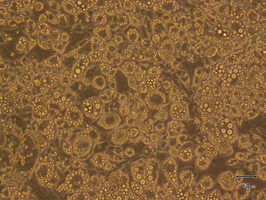
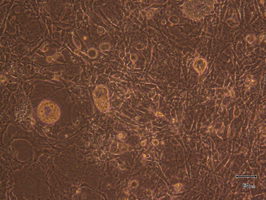
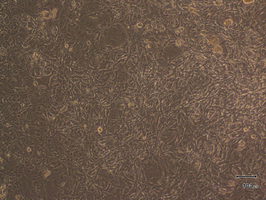
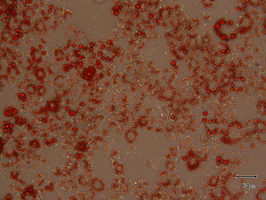
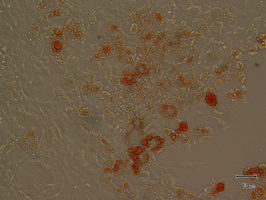
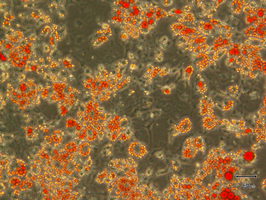
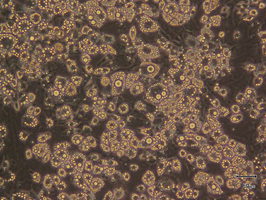
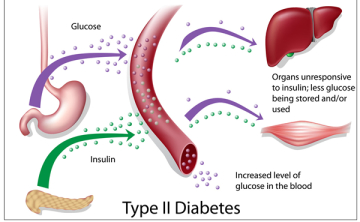
![Type 2 Diabetes - The Essential Diabetes Book: The 10 Most Important Questions Answered (Type2) by [Nguyen, N.]](https://images-na.ssl-images-amazon.com/images/I/51f0ipPVcEL.jpg)


